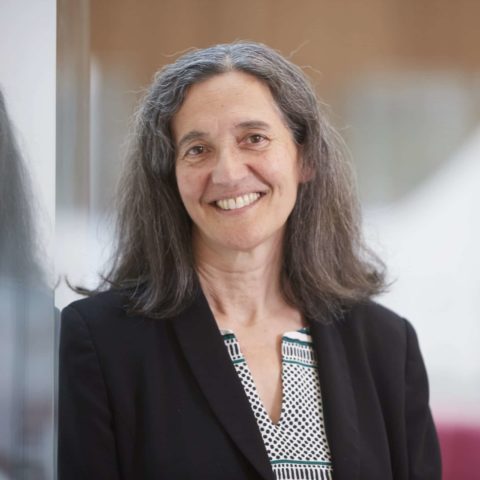Immunotherapy – An Emerging Treatment
The number of clinical trials using immunotherapy is increasing.
Immunotherapy drugs allow the cancer to become visible to the immune system, so the immune system can attack it. It has shown incredible success in melanoma, lung and bladder cancer, which previously had limited options for treatment.
Breast Cancer Trials currently has two open immunotherapy clinical trials, CHARIOT and DIAmOND.
However, before this came PANACEA.
The PANACEA Clinical Trial
PANACEA was Breast Cancer Trials first immunotherapy clinical trial, which paved the way for trials like DIAmOND.
Led by Professor Sherene Loi, PANACEA was studying women who had HER2-positive advanced breast cancer who had already received standard therapy such as trastuzumab or Herceptin based therapy, possibly alongside chemotherapy.
Professor Prue Francis is a medical oncologist and Chair of the Breast Cancer Trials Scientific Advisory Committee. She said PANACEA was exciting, as it was venturing into a new area of breast cancer research.
“The PANACEA trial was going into a new area for HER2 positive in breast cancer. It was looking at trying to introduce new immunotherapy into the treatment for women with HER2 positive breast cancer.”
It studied the most suitable dose of pembrolizumab and trastuzumab when these drugs are used together and to assess if their combined use is an effective treatment and can be used without chemotherapy.
“What was very exciting was there was some evidence of activity for this combination and so there will be future studies with immunotherapy as a result of this.”
“One of the things from the PANACEA trial that was learned was that the women who, when they studied their tumour and they found that their tumour had some expression of this marker called PDL1 or if they had a tumour infiltrating lymphocyte which are immune cells, that these were the women that potentially could benefit from that strategy.”
Listen to the podcast
Professor Prue Francis discusses the PANACEA clinical trial.
The DIAmOND and CHARIOT Clinical Trials
Two of these future immunotherapy studies are the Breast Cancer Trials clinical trials; DIAmOND and CHARIOT.
The PANACEA study led to the DIAmOND clinical trial.
“In the DIAmOND trial we’re studying women with HER2 positive advanced breast cancer and combining two immunotherapy drugs with the trastuzumab.”
“We’ll also be looking at women slightly earlier in the course of their advanced disease when they haven’t had quite so many therapies, because we think the immune system actually may be more receptive to these immune type treatments earlier in the course of the disease rather than waiting until there are no other therapies left.”
Professor Francis said although she is excited about the future of immunotherapy treatments, they still need to find what disease types will benefit most.
“I think it will become an important part of breast cancer, but I think that we will need to learn exactly which patients will be the ones who might benefit from immunotherapy.”
“At the moment the clues that we have is that there may be some patients with triple negative breast cancer that could benefit. So, that’s where there’s no oestrogen receptor, no progesterone receptor, no HER2 over expression” she said.
“Also, some with HER2 positive breast cancer.”
“At the moment for the most common type of breast cancer, which is oestrogen receptor positive, HER2 negative, it’s less clear what role immunotherapy will play because hormone therapy has been a very important treatment for that group.”
“But I think even amongst that group there will be women who could benefit from immunotherapy.”
“I think it’s a very exciting time at the moment in the immunotherapy field, to try and learn which women can benefit and how and in what context.”




